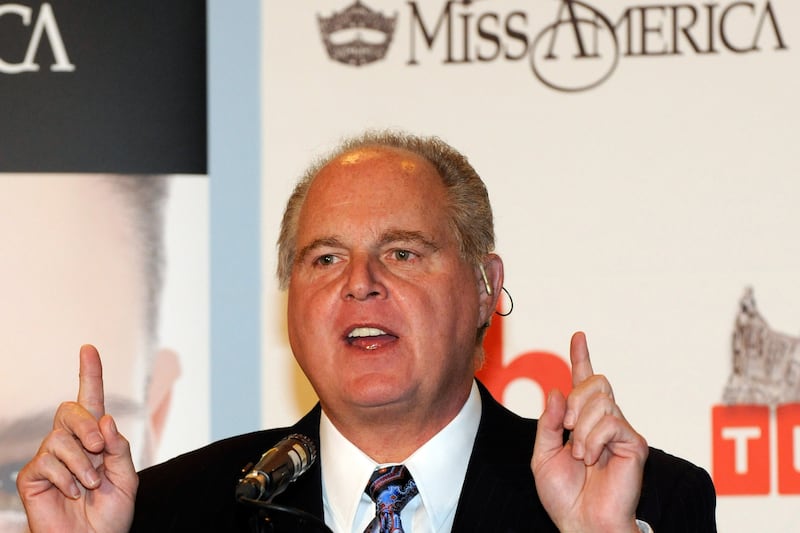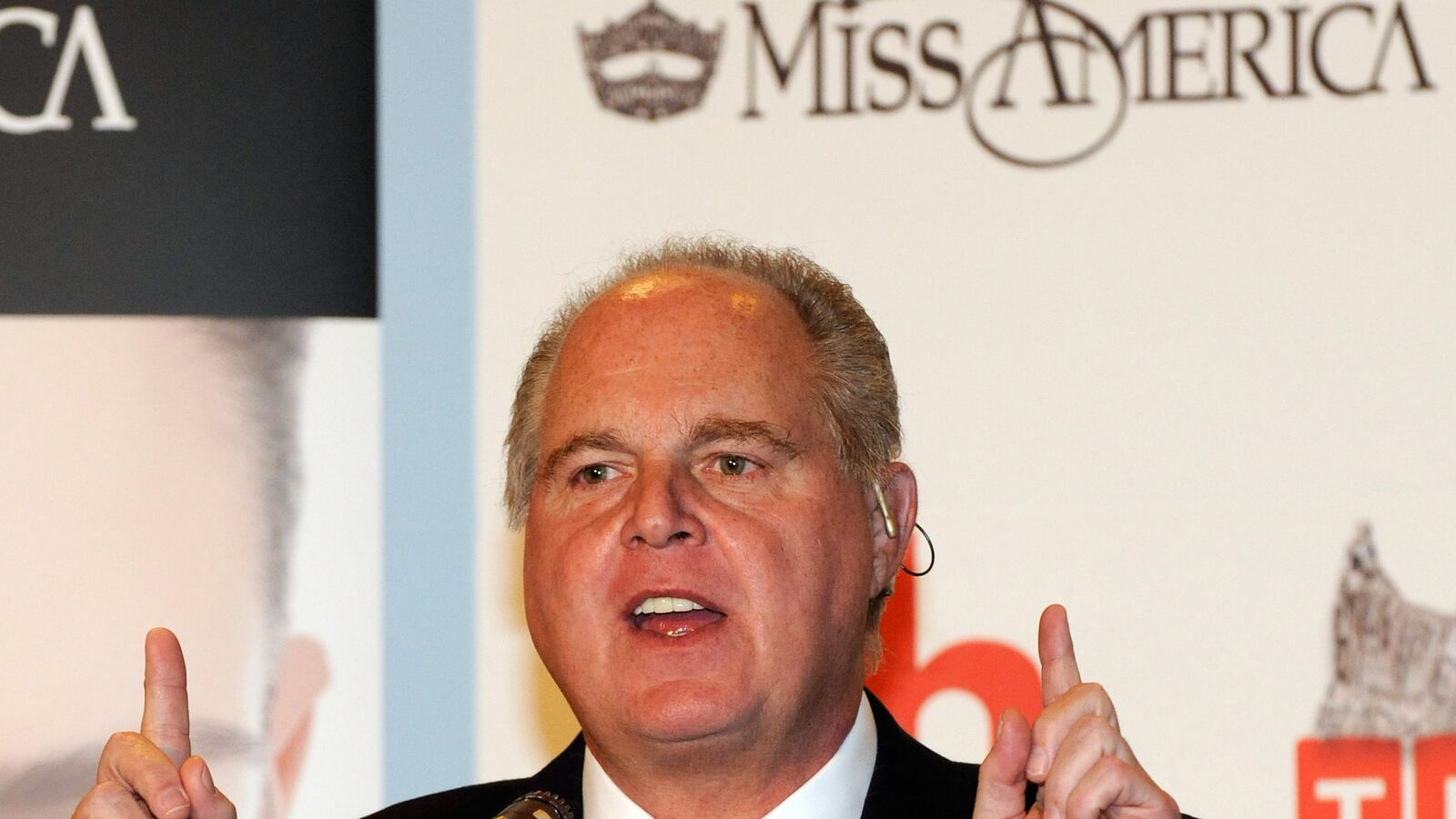It’s become an article of faith among some Republican elites that the GOP doesn’t have an outreach problem, it has a turnout problem. During a recent interview with Greta Van Susteren of Fox News, for instance, Rush Limbaugh boiled down the argument to its core. It’s not that the GOP has an issue with racial minorities or that most voters—whites included—have no interest in its policies or approach. Its problem is that it isn’t conservative enough. “The people that sat home,” he explained, were “mostly white Republican voters,” who were “dissatisfied with the Republican Party’s rejection of conservatism.”

Now, to most observers, the GOP has done everything but reject conservatism. Mitt Romney may have made his name as a moderate governor of Massachusetts, but his platform as Republican presidential nominee was a grab bag of proposals from the wish lists of conservative activists: large tax cuts for the wealthy, larger cuts to the social-safety net, prohibitions on abortion, opposition to same-sex marriage, and a hardline stance on immigration.
And indeed, in the nine months since Romney lost the presidential election, Republicans have only moved further to the right, falling deeper into the “fever” of intransigence and obstruction. Just this past week, for example, House Republicans had to give up on appropriating funds for the Department of Housing and Urban Development. Why? Because their right-wing members demanded massive cuts to key programs, and less doctrinaire Republicans wouldn’t go along.
The problem for potential reformers in the GOP, however, is that the rank and file is on the side of the zealots. According to the latest survey from the Pew Research Center, 67 percent of self-identified Republicans say the party needs to “address major problems” if it’s going to be competitive in national elections. For them, however, this isn’t a case of being too conservative. Indeed, it’s the opposite: 54 percent of Republicans say the party’s leadership isn’t conservative enough. And 35 percent say that GOP leaders have compromised too much in their dealings with President Obama. Presumably, this minority wanted Republicans to hold out on the debt ceiling and refuse to deal on the fiscal cliff and is pushing for a standoff over funding the government this fall.
This wish for a more conservative Republican Party holds for a variety of issues. Thirty-six percent say that the party should be more conservative on immigration—compared with 17 percent who say it’s “too conservative”—and 46 percent say it should be more conservative on government spending, compared with just 10 percent who say it’s too conservative. Guns are the only area where a majority say the party is in a right place, and recall, the GOP’s position on guns is that regulations—of any sort—are verboten, even when they have support from the vast majority of Americans.
None of this would be a huge problem for efforts to move the GOP to the center of American politics if the most moderate Republicans were also the most active. In reality, the opposite is true. The most conservative voters are also most likely to vote in all elections, including primaries. Of the 37 percent of Republicans who agree with the Tea Party, 49 percent say they always vote in nomination contests, compared with 22 percent of moderate and liberal Republicans.
In other words, hard-right conservatism is where the enthusiasm is, and it’s reflected in the broader state of Republican politics. To wit, it’s hard to imagine how Kentucky Sen. Mitch McConnell could do more to satisfy the conservative base. For the last four years, he has all but led the GOP opposition to Barack Obama, setting Republicans on a path of complete opposition to the president’s priorities and nearly derailing his signature accomplishment, the Affordable Care Act.
From the beginning, he understood—correctly—that Obama’s popularity depends on a broader perception of cooperation and bipartisanship in Washington. By denying that, he harmed the president’s core appeal and helped turn a critical mass of the electorate against the White House, setting the stage for the GOP’s massive win in the 2010 midterm elections.
But despite all this, Mitch McConnell faces a primary challenge. Matt Bevin is a Louisville businessman and Tea Party favorite who sees the five-term senator as a patsy and a squish. “McConnell has voted for higher taxes, bailouts, debt-ceiling increases, congressional pay raises, and liberal judges,” said Bevin in his first ad.
Given McConnell’s actual actions, it’s tempting to dismiss Bevin as delusional. The truth of the matter, however, is that he speaks for a large plurality—if not majority—of Republicans who believe that success can only come when the party moves far, far to the right. And at the moment, there’s nothing—not electoral defeat, not public opprobrium—that will disabuse them of that conviction.





